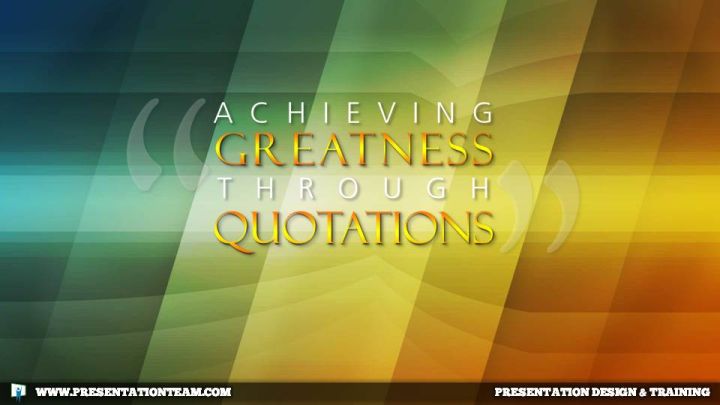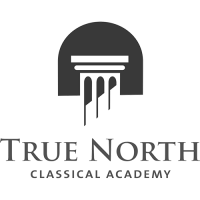Achieving Greatness Through Quotations

Discover how quotations can add life and depth to a talk, lending credibility and authority…and open new doors to your speech and writings.
“A quotation in a speech, article or book is like a rifle in the hands of an infantryman. It speaks with authority.”
Brendan Francis
Quotations have always fascinated me. As a child, I spent hours upon hours reading my parent’s copy of the Bartlett’s Book of Quotations. It gave me insights and intrigue. Words from famous people I had only heard or read about in school.
George Washington: “It is better to be alone than in bad company.”
Or Thomas Edison: “Genius is one per cent inspiration, ninety-nine per cent perspiration.”
So when I was called on recently at a Toastmasters Meeting to deliver an improvisational talk about dealing with the good and bad of life, I was prepared with a clever quote. Or so I thought. The “Tabletopics Master” singled me out to address “the meaning of life.” I boldly stood and delivered a meaningful message from memory.
“The tragedy of life is not that we wait so long to begin it but that we wait…” No.
“The tragedy of life is not that it ends so soon, but we begin it too late…” No.
“The tragedy of life is not that it ends so soon, but that we wait so long to begin it.” Yes!
Yes, three times to deliver those simple words, and by the time the correct quote trickled off my tongue, the meaning was lost. Everyone was focused on how I was saying it than what I was saying.
I believe quotations are the icing on a cake for a good talk. Great leaders, politicians, businesspeople, and entertainers, weave them into their words. Indeed, “we stand on the shoulders of giants.”

Quotations add life and depth to a talk, lending credibility and authority. Research and insight. They can open new doors to your speech. And these quotations need not be only words by famous people. They can be lines from movies. Lyrics from songs. Quotes from poems. Statistics from studies.
“In the magazine Science, it was reported last year nearly 45,000 people died in auto collisions, the equivalent of a fully loaded passenger jet crashing with no survivors every day for a year. If everyone wore seat belts, more than half of these deaths could have been avoided.”
This is a jarring statistic! And notice the imagery used in conjunction with the statistics. If properly assembled and presented, statistics and quotations can be powerful verbal tools. Quotes add meat to a speech or article in many ways. Here are four:
- They add dimension and richness to a speech, injecting your talk with a unique perspective, refreshingly different from your standard speaking style.
- They show your talk has been well-researched…not just something quickly crafted and rattled off the tip of your tongue.
- They add credibility to you and your talk, especially if you’re quoting a well-known and admired historical figure.
- They reduce the amount of individual creativity you – as a writer – need to create. This article is only 66% my own content; the other 33% is only borrowed.
Combine the words “wise old man,” and the images of a bearded sage speaking softly to a young man comes to mind, offering words of wisdom.

“A bird in the hand is worth two in the bush”
“Every quotation contributes something to the stability or enlargement of the language.”
Samuel Johnson
This is not to say that quotations are not universally adored and treasured. When asked about the impact of quotes in writing and speaking, Ralph Waldo Emerson rattled, “I hate quotations. Tell me what you know.”
W. Somerset Maugham was a bit more biting:
“She had a pretty gift for quotation, which is a serviceable substitute for wit.”
Quotes resurrect a person, place, or time. And as speakers or presenters, we should strive to frame them in their original context. Act them out, put them in an overly dramaticized style. Amplified accents. Distinct delivery. If you’re using visuals or a PowerPoint, put the quote on screen, along with the attributed person’s photo, name, and lifespan.
Perhaps my strongest point about using quotes in speeches is that they should be well-rehearsed. Memorized. Prepared and in-context. I would love to be able to just rattle-off quotes like wise leaders like Winston Churchill or Bill Clinton. Or snappy comebacks like some witty Hollywood comedians.
To master this craft of “quotations in speaking” takes attitude, practice and time.
You can find thousands of quotes on attitude. Here’s a favorite of mine by Lou Holtz: “Ability is what you’re capable of doing. Motivation determines what you do. Attitude determines how well you do it.”
And on the subject of practice: “If practice makes perfect, and no one’s perfect, then why practice?”
Time and again, read these quotes, recite them. Pin them up in your office walls, see them, repeat them. Live them. The words of the leaders of the past can be reborn by the leaders of today.

Composer and musician Leonard Bernstein has always an icon to me. As a child, I loved his music from West Side Story (together with Stephen Soundheim), and would sing the poetic lyrics of this popular musical from the 1950s. As I work to build my professional speaking career, and The Presentation Team, I am often kept focused and on-track by this simple single quote by Mr. Bernstein…something that we can all relate to, as we strive for greatness in our increasingly busy world. I could easily share a few personal insights on what I think it takes to achieve greatness. But isn’t it more powerful to hear words resurrected…quoted…from someone who isgreat? In the words of Leonard Bernstein:
“To achieve great things, two things are needed; a plan, and not quite enough time.”
Leonard Bernstein
Kevin Lerner is a presentation consultant and expert on presentation design and delivery. His firm, The Presentation Team, has helped hundreds of companies and individuals to create world-class presentations.
ideas, pointers, powerpoint, Quotations, quotes, Speaker, speaking, speaking tips, speeches, strategies, Toastmasters



























